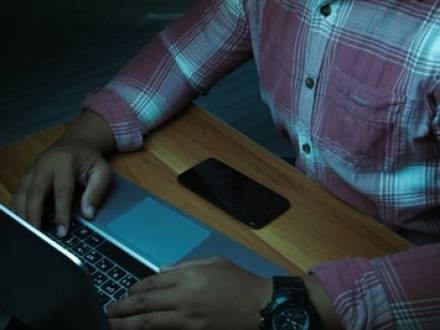Is Cyberbullying a Crime in Illinois?
 Until internet use became mainstream, there were not many laws against bullying. At that time, bullying usually meant insulting or physically assaulting someone else. However, the advent of social media gave rise to a new term called "cyberbullying," a more nefarious type of harassment that can be done anonymously and reach a larger audience. Cyberbullies can use the internet to access information about someone that can then be used to target him or her; and, because of the internet’s instantaneous nature, they can do it repeatedly and often.
Until internet use became mainstream, there were not many laws against bullying. At that time, bullying usually meant insulting or physically assaulting someone else. However, the advent of social media gave rise to a new term called "cyberbullying," a more nefarious type of harassment that can be done anonymously and reach a larger audience. Cyberbullies can use the internet to access information about someone that can then be used to target him or her; and, because of the internet’s instantaneous nature, they can do it repeatedly and often.
Many states, including Illinois, have laws that make cyberbullying a crime. However, this has created other challenges. For example, someone may believe he or she is being cyberbullied when merely engaged in a heated argument. If you are accused of cyberbullying, be sure to consult an Illinois cyberbullying defense attorney to protect your rights.
What Is Cyberbullying?
Illinois law defines "cyberbullying" as using electronic communications to harass, stalk, intimidate, threaten, assault, sexually harass, or humiliate someone. It is important to note that a single instance of one of these acts may not constitute cyberbullying. A person is more likely to be seen as committing a cyberbullying offense if he or she does any of the above pervasively as a course of conduct.
The law has a more specific definition for cyberbullying in schools:
- Causing a student a reasonable fear of harm
- Harming a student’s physical or mental health
- Interfering with a student’s academic performance
- Interfering with a student’s ability to participate in school activities, programs, and benefits
Cyberbullying as Cyberstalking
According to the Illinois Cyberbullying Law, cyberbullying becomes a cyberstalking offense if he or she does the following on at least two separate occasions:
- Uses electronic communication to threaten a person or that person’s family members with sexual assault, bodily harm, physical restraint, or physical confinement
- Places that person or their family members in reasonable fear of the above
Even if the offender does not threaten the victim directly, it can be considered cyberstalking if he or she creates and maintains a website for at least 24 hours that:
- Threatens someone or their family members with bodily harm, physical restraint, sexual assault, or physical confinement
- Places them in reasonable fear of the above
The website has to be visible to at least one other person for it to count as cyberstalking.
What Are the Penalties for Cyberbullying?
A cyberbullying charge can be treated as a Class 4 felony for a first offense, carrying a possible sentence of one to three years in prison and a fine of up to $25,000. It can be advanced to a Class 3 felony for repeat offenses, carrying a similar fine and a possible sentence of two to five years in prison.
Contact a Wheaton, IL Cyberbullying Defense Attorney
Cyberbullying laws may help prevent online harassment, but they can also interfere with personal liberties such as free speech in some cases. Find out how to protect your rights by consulting with Stephen A. Brundage, a former member of law enforcement who has practiced law for over 30 years. Schedule a free consultation with a DuPage County, IL cyberbullying defense lawyer by calling 630-260-9647 today.

 630-260-9647
630-260-9647




